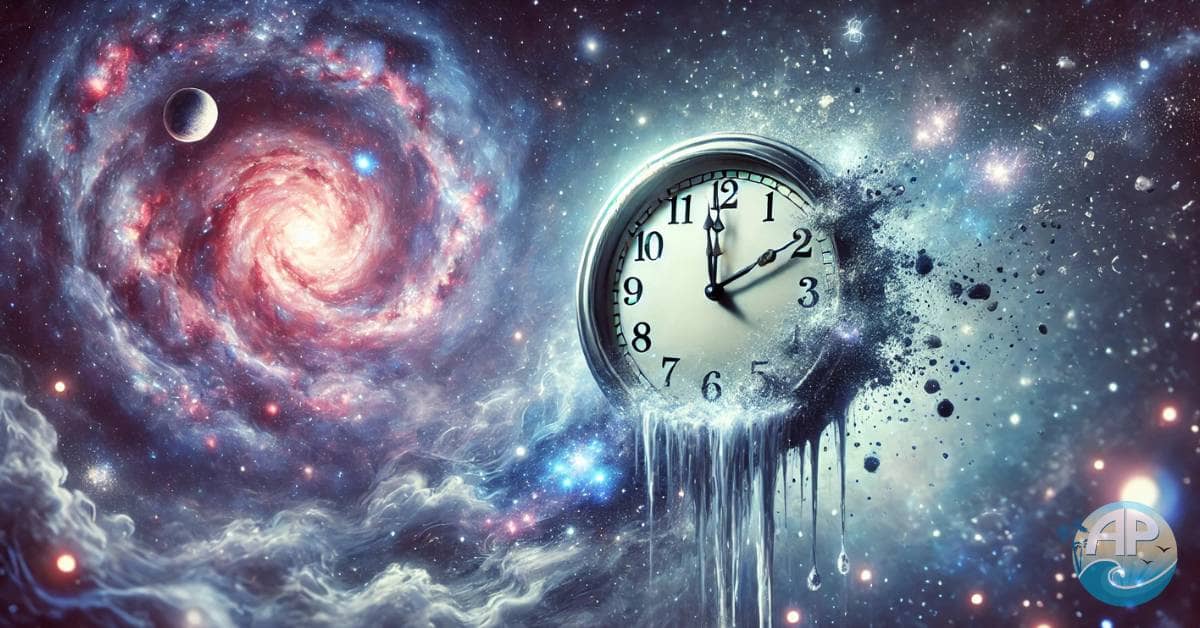Uncover the Mystery of Time – Is It Just an Illusion?
Table of Contents
- The Mystery of Time: Is It Real?
- Does the Clock Shape Our Reality?
- Is Time a Construct or Illusion?
- Einstein’s Theory: Time as an Illusion
- Block Universe: All Time Exists Now
- Quantum Mechanics: Time’s True Nature
- Cyclical Time: Ancient Beliefs
- Living in the Present: Escaping Time
- Life Beyond Time’s Constraints
- Rethinking Time as We Know It
The Mystery of Time: Is Time an Illusion?
Have you ever considered the possibility that time is an illusion? From ancient philosophies to cutting-edge science, the concept that time might be more of a perception than a reality has captivated minds for centuries. While we live by schedules, clocks, and calendars, what if time is simply a construct we rely on to navigate life? This question opens up a realm of fascinating theories and perspectives that challenge the very nature of reality.
The Clock’s Influence: Is Time Real?
Time dictates our lives, but if time itself is an illusion, could it be that we’re living within an artificial structure? Our reliance on clocks and schedules might reinforce a shared mental framework rather than reflect any universal truth.
How Time Became a Perceived Reality
- Ancient Sundials: Early societies used sundials, aligning their lives with natural cycles.
- Mechanical Clocks: The introduction of clocks added routine and structure, redefining how people thought about daily life.
- Atomic Clocks: With atomic precision, clocks now divide time down to milliseconds, cementing the concept of time as a concrete measurement.
If time is, in fact, a construct, our reliance on these devices might be reinforcing an illusion that has simply become part of our reality. Explore more in: Bound by the Clock: How Time Shaped Human Life
Is Time a Construct or an Illusion?
If time itself is an illusion, it may be a construct we rely on to understand the world. Different cultures interpret time uniquely, hinting that our experience of it might be more flexible than we assume.
The Cultural Creation of Time
- Linear vs. Cyclical Time: Western cultures perceive time as linear, whereas others, like Hindu societies, see it as cyclical.
- Event-Based Time: Some societies prioritize natural events over hours or minutes.
These differences point to time as potentially subjective, reinforcing the notion that time is an illusion rooted in cultural interpretation. For further exploration, read: Social Constructs of Time: Do We All Experience It the Same?
Einstein’s Theory: Why Time May Be an Illusion
Einstein’s relativity theory challenges our conventional understanding, suggesting that time may indeed be an illusion that shifts based on speed and gravity.
How Relativity Affects Our View of Time
- Time Dilation: The stronger the gravitational field, the slower time flows, challenging the notion of a fixed reality.
- Space-Time Fabric: Time and space are intertwined, meaning that when one shifts, the other does too.
Relativity hints that time might not be real in the way we think, suggesting that our linear perception could simply be a construct. Dive deeper into this idea here: Einstein’s Relativity: Why Time Isn’t What It Seems.
The Block Universe: Does All Time Exist Now?
The Block Universe Theory suggests that past, present, and future coexist, proposing that time’s flow may be an illusion rather than an actual sequence.
The Fixed Nature of Time in a Block Universe
- All Moments Exist at Once: According to this theory, time does not flow; instead, all moments exist together.
- Predetermined Paths: If each moment is fixed, our choices may simply be following a predetermined path.
In this view, our perception of time’s flow could be more about how we experience reality rather than an inherent truth. Explore more in: The Block Universe: Living in a World Where All Time Exists.
Quantum Mechanics: The Illusion of Time’s Flow
Quantum mechanics challenges our understanding of time, suggesting that time may be more of an illusion at the subatomic level.
What Quantum Theory Reveals About Time
- Superposition: Particles exist in multiple states simultaneously, defying a simple timeline.
- Entanglement: Particles interact instantaneously over distances, challenging the idea of time as a constraint.
If particles operate outside conventional time, our experience of a linear timeline could simply be a limited perception. For more, see: [“Quantum Time: Is Time Real on the Smallest Scales?”].
Cyclical Time: Ancient Views on Time as an Illusion
Ancient civilizations saw time not as linear but as cyclical, implying that time may be an illusion of repetitive patterns.
Cyclical Time and Repeating Realities
- Hindu Yugas: Hinduism describes time as ages that repeat endlessly.
- Buddhist Reincarnation: Life and death are viewed as part of a cycle, challenging linear time.
- Mayan Calendar: The Mayans saw time as a loop rather than a one-way journey.
These perspectives reinforce the possibility that time’s flow may be an illusion, with our experience of progression simply being one interpretation. Discover more in: Ancient Cycles: How Cultures Viewed Time as a Loop.
Embracing the Present: Escaping the Illusion of Time
Living fully in the present moment is often viewed as a way to step outside of time’s grip. Spiritual teachings encourage escaping the illusion of time by focusing on the “now.”
Mindfulness and Breaking Free from Time
- The Power of Now: As Eckhart Tolle teaches, the present moment is our only reality.
- Mindfulness Practices: Focusing on the now can help us let go of thoughts of the past and future, freeing us from time’s mental construct.
Mindfulness offers a way to experience life without the constraints of time. Discover more in: [“Living in the Now: A Guide to Embracing the Present Moment”].
Life Beyond Time’s Constraints
Imagine a life without deadlines or schedules. If time is an illusion, freeing ourselves from these constraints could lead to a more authentic existence.
Living Outside Time’s Boundaries
- Let Go of the Clock: Try spending a day without checking the time to see how it feels.
- Follow Natural Rhythms: Work when energized and rest as needed, finding your own natural rhythm.
- Feel the Difference: Notice the changes in focus and relaxation when you’re not bound by time.
This approach offers a new way to experience life, free from the restrictions we often place on ourselves. Learn more in: [“Breaking Free from Time: How to Live Without Clocks”].
Conclusion: Seeing Time as an Illusion
Between science, philosophy, and ancient wisdom, there is much to suggest that time may truly be an illusion. If we see time as a flexible concept rather than a strict framework, we might discover a new level of freedom.
Consider how much of your life is dictated by time. Perhaps true liberation lies in letting go of time and embracing the world as a series of moments, with time serving only as a tool for convenience.
For more insights into the nature of time, read: [“The Reality of Time: Illusion or Truth?”]
Ready to Question Everything?
If the idea that time is an illusion has sparked your curiosity, you’re not alone. Join The Out Thinkers, a community for those who dare to dive deeper, challenge the norm, and explore the truths often overlooked. Come explore with us and connect with like-minded souls on a journey of awakening. Join The Out Thinkers here




